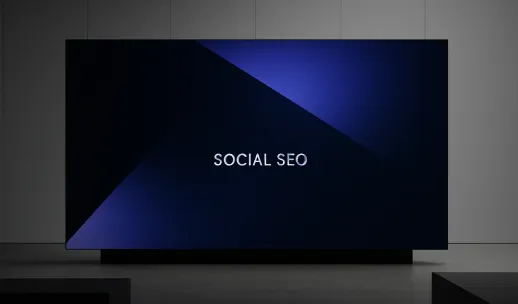AI in Performance Marketing: A Game Changer by Huta Digital

Explore the transformative impact of artificial intelligence on performance marketing — from predictive analytics to automated bidding — and how it's driving smarter strategies.
AI in Performance Marketing: A Game Changer
Artificial intelligence (AI) is rapidly reshaping the landscape of performance marketing. From predictive analytics to automated bidding, AI-driven tools enable smarter decision-making, more personalized experiences, and greater efficiency. In this article, we explore key applications of AI in performance marketing and examine how brands can harness its power to stay ahead.
Predictive Analytics: Anticipating Customer Behavior
AI-powered predictive analytics uses historical data and machine-learning models to forecast future outcomes — whether that’s a user’s likelihood to convert, churn probability, or optimal purchase timing.
- Customer Segmentation: Algorithms cluster audiences based on behavior patterns, allowing marketers to tailor campaigns to high-value segments.
- Churn Prevention: Predictive models identify at-risk users, enabling timely re-engagement through targeted offers or messaging.
- Lifetime Value (LTV) Forecasting: Estimating the expected value of users over their lifespan guides budget allocation and creative prioritization.
Automated Bidding: Real-Time Optimization
Manual bid management can’t keep pace with rapidly changing auction dynamics. AI-driven bidding platforms continuously adjust bids in real time to meet defined goals — such as maximizing conversions within a target CPA (cost per action) or achieving a specific return on ad spend (ROAS).
- Smart Bidding Strategies: Tools like Google’s Target CPA and Target ROAS leverage machine learning to predict auction outcomes and set optimal bids.
- Budget Efficiency: Automated systems allocate spend to top-performing keywords, channels, and audiences — minimizing wasted budget.
- Rapid Adaptation: As performance patterns shift throughout the day, AI responds instantly, capitalizing on emerging opportunities.
Dynamic Creative Optimization: Personalized Messaging
Delivering the right creative to the right person at the right time is central to performance marketing. AI enables dynamic creative optimization (DCO), where ad assets — headlines, images, calls-to-action — are automatically assembled and tested.
- Variant Testing at Scale: Machine learning evaluates thousands of asset combinations to identify the highest-impact creative.
- Personalized Experiences: AI selects messaging and visuals based on user data (e.g., browsing history, demographic signals), boosting relevance and engagement.
- Continuous Learning: Creative performance data feeds back into the system, refining future asset selection and design.
Audience Targeting & Lookalike Modeling
AI enhances audience targeting by discovering hidden affinities and similarities among users. Lookalike modeling takes high-value segments and locates new prospects who share key attributes.
- Behavioral Signals: Beyond basic demographics, AI analyzes click patterns, time on site, and content interactions to build richer profiles.
- Cross-Channel Consistency: Unified AI models aggregate data from search, social, display, and email to maintain a cohesive targeting strategy.
- Scalable Expansion: Lookalike audiences fuel growth by extending reach to users with the greatest conversion potential.
Automated Campaign Management & Workflow
AI-driven platforms automate routine marketing tasks — campaign creation, budget pacing, rule-based optimizations — freeing up teams to focus on strategy and creativity.
- Rule Automation: Predefined rules trigger adjustments (e.g., pausing underperforming ads, reallocating budget) without manual intervention.
- Smart Alerts: AI systems flag anomalies or significant performance shifts, ensuring timely responses.
- Integrated Dashboards: Centralized AI dashboards consolidate metrics and recommendations, simplifying oversight across multiple channels.
Voice & Conversational Marketing
Conversational AI — chatbots and voice assistants — enhances customer engagement and conversion by providing instant, personalized interactions.
- Lead Qualification: Chatbots collect user information, answer FAQs, and qualify leads before passing them to sales teams.
- Voice-Search Optimization: As voice-activated queries grow, AI helps adapt content and ad strategies to match conversational search patterns.
- 24/7 Availability: Automated assistants maintain continuous engagement, guiding prospects through their journey around the clock.
-
Embracing an AI-Driven Future
- Data Quality & Governance
Reliable AI outcomes depend on clean, well-structured data. Establish clear data governance policies and integrate disparate sources into unified datasets. - Experimentation & Testing
AI tools thrive on continual learning. Run controlled experiments (A/B tests, multivariate tests) to validate models and refine algorithms over time. - Ethical Considerations
Transparency in algorithmic decisions, respect for user privacy, and avoidance of biased targeting are essential for maintaining trust and compliance. - Human + Machine Collaboration
While AI excels at scale and speed, human insight remains invaluable. Blend algorithmic recommendations with strategic oversight to craft campaigns that resonate emotionally.
Conclusion
AI is transforming performance marketing into a more precise, scalable, and personalized discipline. By leveraging predictive analytics, automated bidding, dynamic creative optimization, and conversational AI, brands can achieve smarter strategies and superior results. Embracing AI not only streamlines operations but also unlocks new avenues for growth — positioning marketers to thrive in an increasingly data-driven world.






